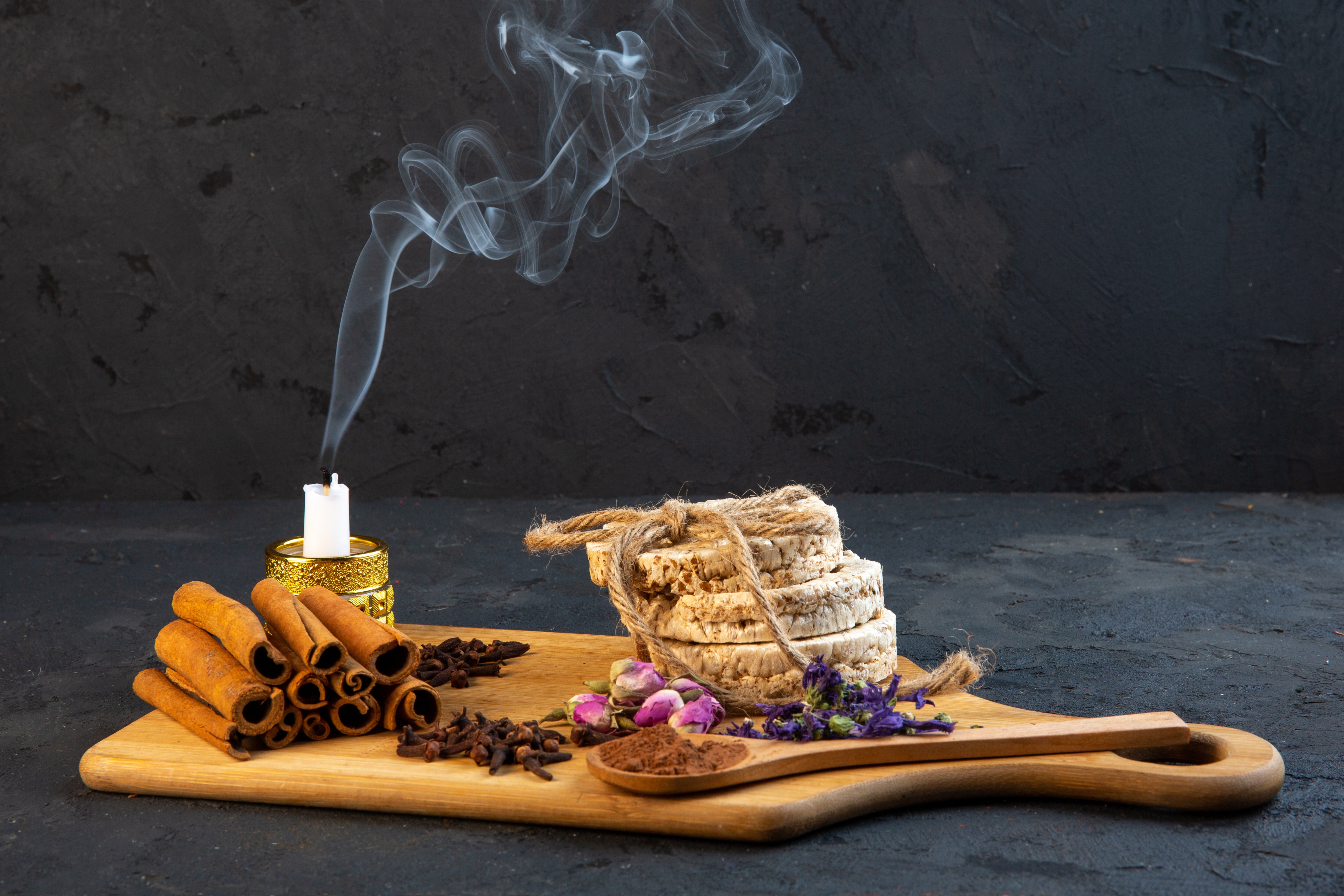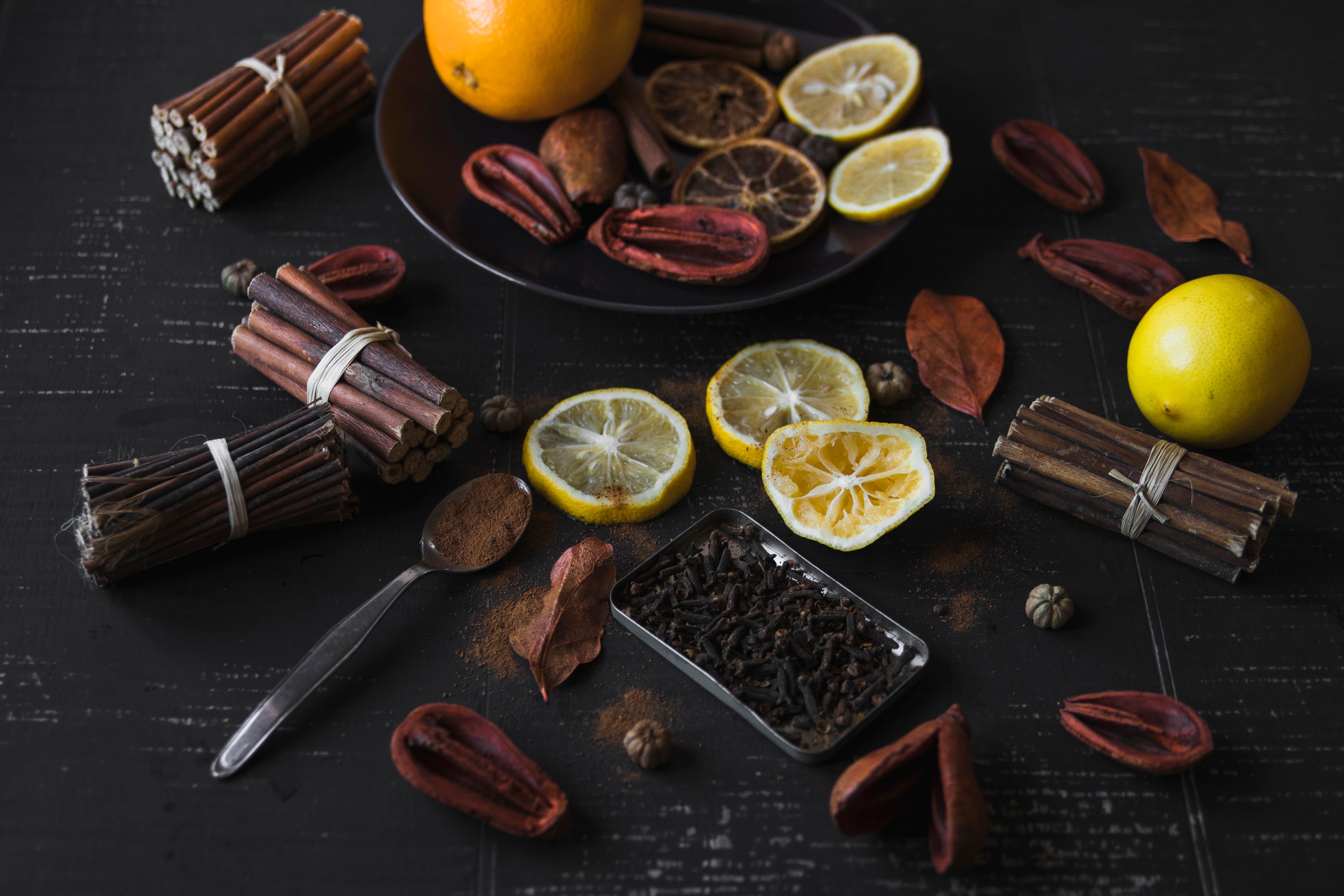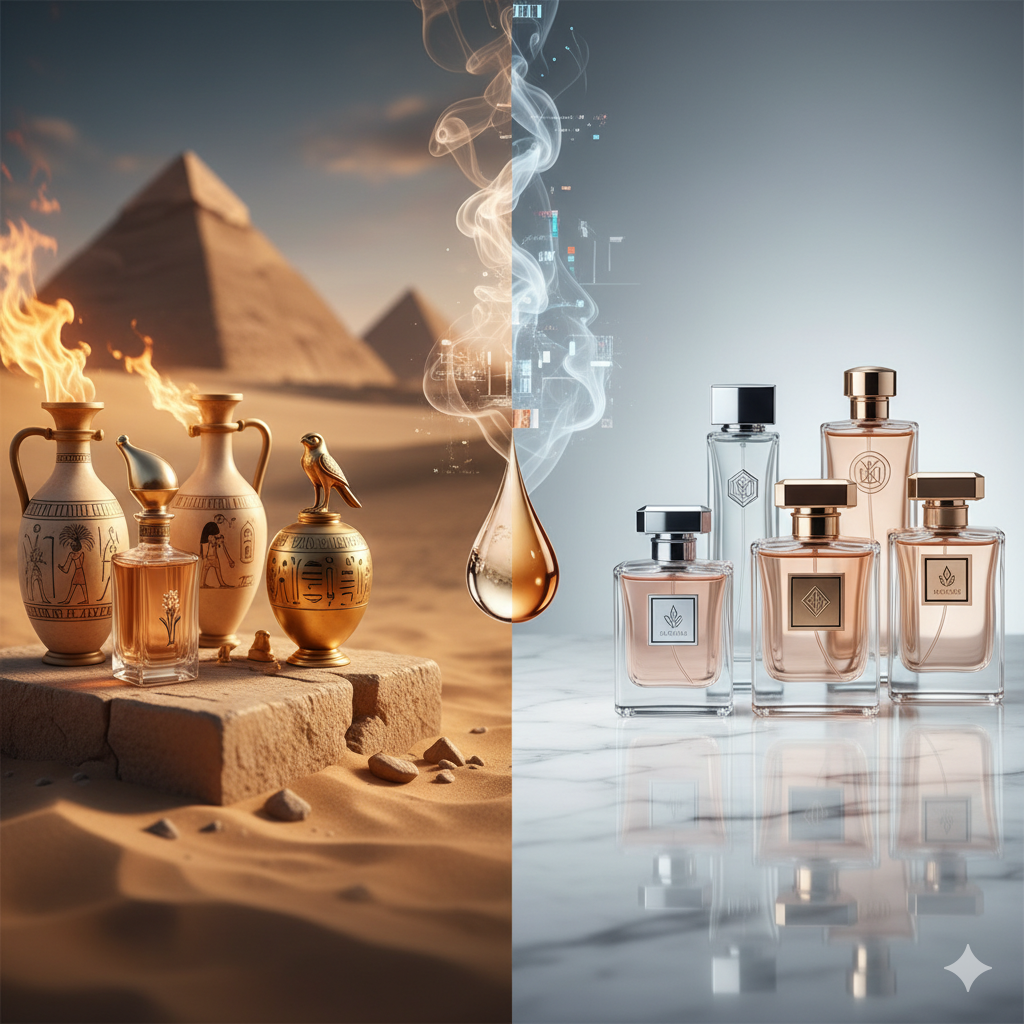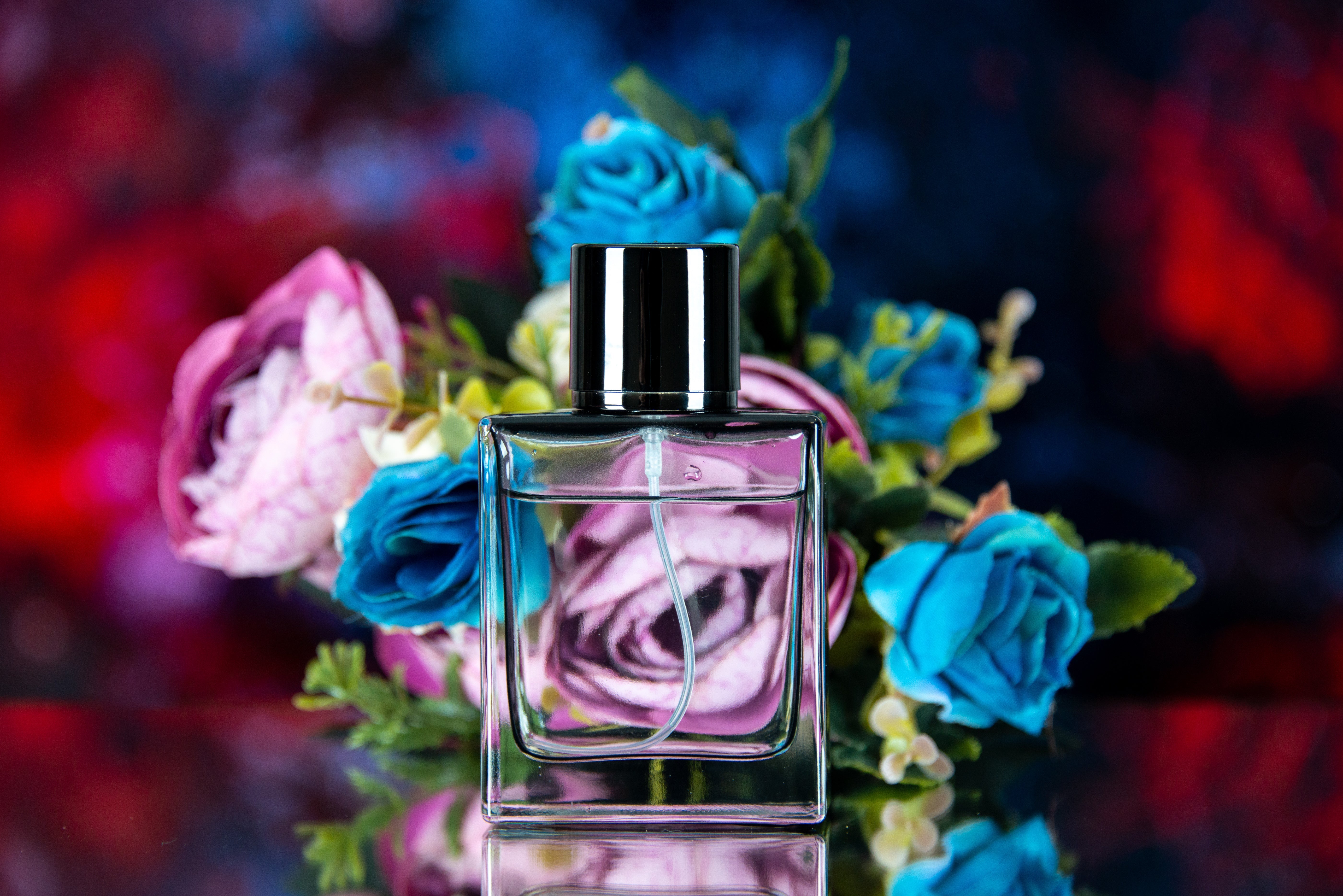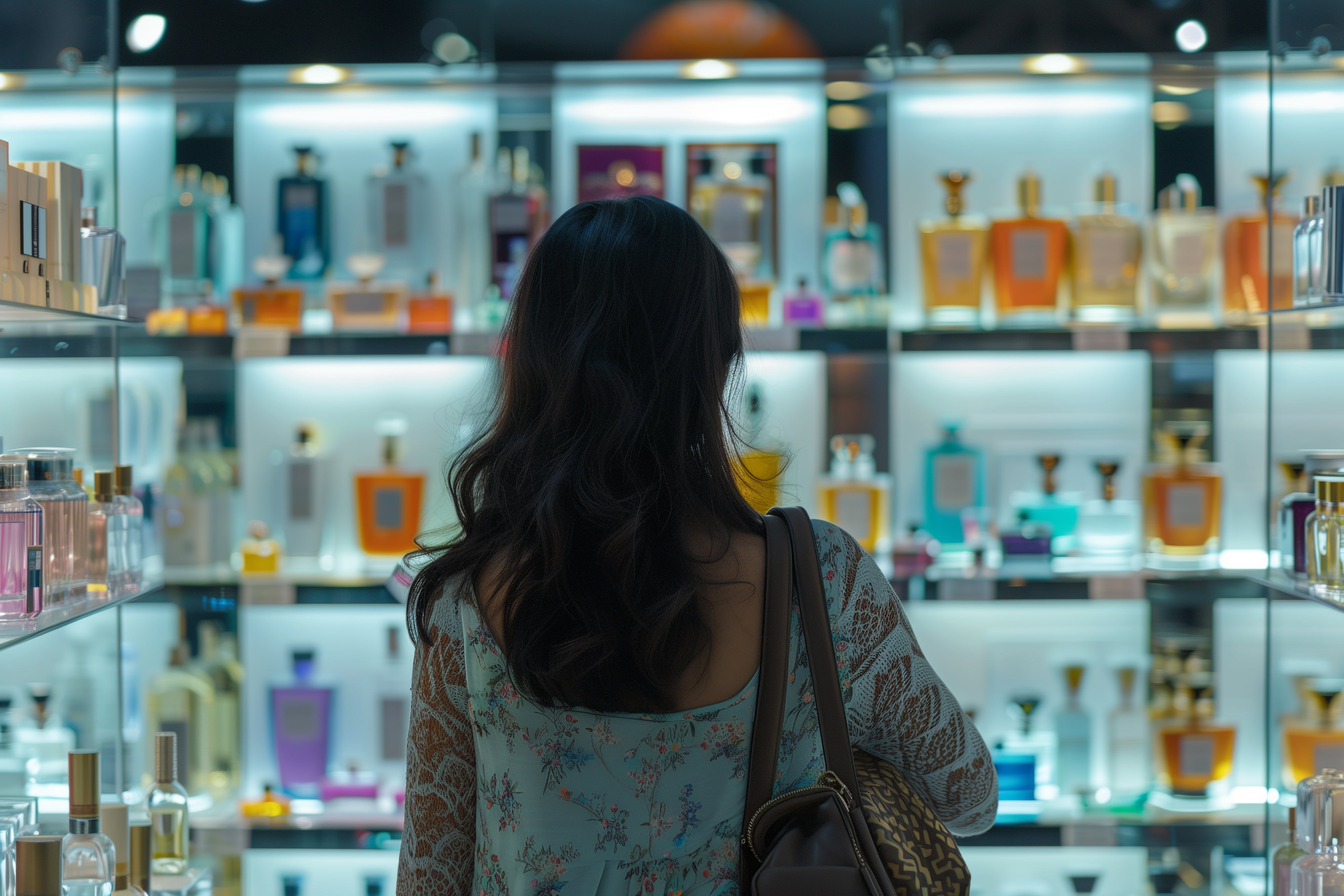Understanding Perfume Notes: A Complete Guide to Fragrance Pyramid from Citrus to Woody Bases
Shopping for perfume can feel overwhelming when you're faced with hundreds of bottles promising different scents. But here's a secret that professional perfumers know: every fragrance is built on a simple three-layer structure called the fragrance pyramid. Understanding perfume notes—the individual scent components that make up this pyramid—is the key to finding your perfect signature scent and shopping smarter.
Whether you're in Karachi's humid climate or Islamabad's cooler weather, knowing how to decode perfume notes will transform you from a confused shopper into a confident fragrance connoisseur. This comprehensive guide will teach you everything about top notes, middle notes (heart notes), and base notes, with real perfume examples you can find in Pakistani markets.
What Are Perfume Notes? The Building Blocks of Fragrance
Perfume notes are the individual scent ingredients that perfumers blend to create a complete fragrance. Think of them like musical notes in a song—each one contributes to the overall composition, and they work together in harmony to create something beautiful.
When you spray perfume, you don't smell all the notes at once. Instead, they reveal themselves over time in three distinct phases:
- Top Notes (0-15 minutes): The first impression—light, fresh, volatile
- Middle Notes/Heart Notes (15 minutes - 4 hours): The personality—fuller, more complex
- Base Notes (4-24+ hours): The foundation—deep, rich, long-lasting
This layered structure is called the fragrance pyramid or olfactory pyramid, and it's the universal language of perfumery used by everyone from French luxury houses to local attar makers in Karachi's Jodia Bazaar.
The Science Behind Perfume Note Evolution
Understanding why perfume notes evolve requires basic chemistry knowledge. Each note has a different molecular weight and volatility rate:
- Light molecules (top notes): Small size (130-165 daltons), evaporate quickly
- Medium molecules (middle notes): Mid-size (166-230 daltons), evaporate moderately
- Heavy molecules (base notes): Large size (230+ daltons), evaporate slowly
The chemical structure determines how fast a molecule escapes from your skin into the air. Smaller molecules move faster and disappear sooner, while larger molecules cling to your skin for hours or even days.
Top Notes: The First Impression (0-15 Minutes)
Top notes are the opening act of any perfume—the scents you smell immediately after spraying. These are deliberately chosen to be light, fresh, and attention-grabbing because they're your first impression of a fragrance.
Common Top Note Families
Citrus Top Notes
The most popular category for top notes, citrus scents are bright, zesty, and universally appealing.
Key Ingredients & Chemical Components:
- Bergamot - Contains limonene (C₁₀H₁₆) and linalyl acetate (C₁₂H₂₀O₂). Fresh, slightly bitter citrus
- Lemon - Rich in limonene (C₁₀H₁₆) and citral (C₁₀H₁₆O). Sharp, clean, energizing
- Orange - Contains limonene and myrcene (C₁₀H₁₆). Sweet, juicy, uplifting
- Grapefruit - Nootkatone (C₁₅H₂₂O) gives signature bitterness. Tangy, refreshing
-
Mandarin - Sweeter than orange, contains γ-terpinene. Soft, playful citrus

Real Perfume Examples with Citrus Tops:
- Chanel Chance Eau Fraîche - Pink pepper and lemon top notes
- Dolce & Gabbana Light Blue - Sicilian lemon and apple
- Versace Bright Crystal - Yuzu and pomegranate
- Local Attar: Lemon Attar - Pure citrus oil available in Pakistani markets
Best For: Hot Pakistani weather, office wear, daytime freshness, summer months
Herbal & Green Top Notes
Fresh, crisp, and natural-smelling notes that evoke gardens and nature.
Key Ingredients:
- Basil - Contains linalool (C₁₀H₁₈O) and eugenol (C₁₀H₁₂O₂). Aromatic, slightly spicy
- Mint - Menthol (C₁₀H₂₀O) creates cooling sensation. Fresh, invigorating
- Lavender - Linalool and linalyl acetate. Herbal, clean, calming
-
Tea Leaves - Containing catechins and polyphenols. Crisp, elegant

Real Perfume Examples:
- Hermès Un Jardin Sur Le Toit - Green tea and mint
- Jo Malone Basil & Neroli - Basil and white florals
- Bvlgari Eau Parfumée au Thé Vert - Green tea accord
Best For: Professional settings, unisex fragrances, spring and winter wear
Fruity Top Notes
Sweet, playful, and youthful scents beyond citrus fruits.
Key Ingredients:
- Apple - Ethyl 2-methylbutyrate creates apple scent. Crisp, fresh
- Pear - Ethyl (2E,4Z)-deca-2,4-dienoate for pear note. Juicy, soft
- Berries (strawberry, raspberry, blackcurrant) - Various esters. Sweet, tangy
-
Peach - γ-Decalactone (C₁₀H₁₈O₂). Fuzzy, sweet, creamy

Real Perfume Examples:
- Viktor & Rolf Flowerbomb - Tea and bergamot with fruity nuances
- Marc Jacobs Daisy - Strawberry and violet leaves
- Paco Rabanne Olympéa - Green mandarin and ginger flower
Best For: Young consumers, casual wear, dates, spring/summer
Aromatic & Spicy Top Notes
These create immediate warmth and intrigue.
Key Ingredients:
- Pink Pepper - Contains β-phellandrene. Sparkling, rosy spice
- Cardamom - α-Terpinyl acetate and cineole (C₁₀H₁₈O). Warm, spicy-sweet
- Ginger - Zingerone (C₁₁H₁₄O₃). Sharp, warm, energizing
-
Coriander - Linalool-rich. Fresh, spicy, slightly floral

Real Perfume Examples:
- Dior Sauvage - Calabrian bergamot and pepper
- Gucci Guilty - Pink pepper and lemon
- Tom Ford Black Orchid - Bergamot and black truffle
Best For: Evening wear, fall/winter, masculine and unisex fragrances
Why Top Notes Fade Quickly in Pakistan's Climate
Pakistan's hot weather accelerates the evaporation of top notes. In Karachi's 35-40°C temperatures, citrus top notes that normally last 10-15 minutes may disappear in just 5-7 minutes. This is why many Pakistanis prefer perfumes with stronger middle and base notes that survive our climate better.
Middle Notes (Heart Notes): The Personality (15 Minutes - 4 Hours)
Middle notes emerge as top notes fade, forming the "heart" of the fragrance. These notes define the perfume's character and typically last 2-4 hours on skin. They're more complex and rounded than top notes.
Common Middle Note Families
Floral Heart Notes
The largest and most diverse category in perfumery, florals are the backbone of most fragrances.
White Florals:
- Jasmine - Contains benzyl acetate (C₉H₁₀O₂), indole. Rich, intoxicating, slightly animalic
- Tuberose - Methyl benzoate and methyl salicylate. Creamy, heady, narcotic
- Gardenia - Synthetic recreation using linalool and phenylethyl alcohol. Creamy, lush
-
Ylang-ylang - Linalool, geraniol (C₁₀H₁₈O), p-cresyl methyl ether. Exotic, sweet, slightly spicy

Real Perfume Examples:
- Chanel No. 5 - Jasmine and May rose
- Tom Ford Velvet Orchid - Black orchid and tuberose
- Estée Lauder Beautiful - Tuberose, jasmine, and lily
- Local Attar: Mogra (Jasmine) Attar - Pure jasmine oil, very popular in Pakistan
Rose Notes:
- Damascena Rose - Contains citronellol (C₁₀H₂₀O) and geraniol. Deep, rich, classic rose
- Centifolia Rose - Phenylethyl alcohol (C₈H₁₀O). Sweet, honey-like rose
-
Turkish Rose - More citrusy and fresh than Damascus

Real Perfume Examples:
- Lancôme La Vie Est Belle - Iris and rose
- Dior J'adore - Rose and jasmine
- Jo Malone Red Roses - Seven types of rose
- Local Attar: Gulab (Rose) Attar - Traditional Pakistani favorite
Fresh Florals:
- Lily of the Valley - Hydroxycitronellal creates scent. Green, dewy, fresh
- Peony - Usually synthetic accord. Light, rosy, airy
- Freesia - Linalool-based. Peppery, fresh, light
-
Violet - Ionones (C₁₃H₂₀O). Powdery, sweet, nostalgic

Real Perfume Examples:
- Penhaligon's Lily of the Valley - Classic green floral
- Prada Infusion d'Iris - Iris and neroli
- Byredo Blanche - White rose and violet
Best For: Feminine fragrances, romantic occasions, spring season, traditional Pakistani preferences
Spicy Heart Notes
Warm, exotic spices add depth and character to the middle phase.
Key Ingredients:
- Cinnamon - Cinnamaldehyde (C₉H₈O). Warm, sweet, comforting
- Clove - Eugenol (C₁₀H₁₂O₂). Spicy, slightly medicinal, intense
- Nutmeg - Myristicin and elemicin. Warm, woody-spicy
-
Saffron - Safranal (C₁₀H₁₄O). Leathery, slightly bitter, luxurious

Real Perfume Examples:
- Yves Saint Laurent Opium - Clove and cinnamon
- Lancôme Magie Noire - Cinnamon and tuberose
- Dior Hypnotic Poison - Cinnamon and jasmine
- Local Attar: Musk Amber - Often contains spice notes
Best For: Cold weather, evening wear, oriental fragrances, Pakistani winter months
Fruity Heart Notes
Different from top note fruits—these are richer, more complex fruit accords.
Key Ingredients:
- Plum - Gamma-undecalactone. Sweet, wine-like, juicy
- Coconut - Gamma-nonalactone (C₉H₁₆O₂). Creamy, tropical, sweet
- Fig - Green and milky lactones. Fresh-sweet, green-woody
-
Apricot - Similar lactones to peach but less fuzzy. Soft, sweet

Real Perfume Examples:
- Kenzo Flower by Kenzo - Plum and rose
- Comptoir Sud Pacifique Vanille Coco - Coconut and vanilla
- Dolce & Gabbana The One - Plum and jasmine
Best For: Gourmand lovers, casual wear, younger audiences
Green & Aquatic Heart Notes
Fresh, natural, and modern-smelling middle notes.
Key Ingredients:
- Geranium - Geraniol and citronellol. Rosy-minty-green
- Violet Leaf - Nonadienal and octadienal. Metallic-cucumber-green
- Cut Grass - Cis-3-hexenol. Fresh-cut lawn smell
- Calone (synthetic) - Creates ocean/watermelon scent. Fresh, marine

Real Perfume Examples:
- Calvin Klein CK One - Green tea and violet
- Issey Miyake L'Eau d'Issey - Lotus and freesia
- Davidoff Cool Water - Calone and lavender
Best For: Sporty fragrances, summer, unisex scents, office-appropriate
Why Middle Notes Matter Most
Middle notes are what you smell for most of the day. While top notes attract you to buy a perfume, middle notes determine whether you'll actually enjoy wearing it. In Pakistan's climate, where top notes fade rapidly, choosing perfumes with excellent heart notes is crucial.
Base Notes: The Foundation (4-24+ Hours)
Base notes are the longest-lasting part of any fragrance. These heavy molecules provide depth, richness, and staying power. They're what you smell at the end of the day and what lingers on your clothes.
Common Base Note Families
Woody Base Notes
The most popular base note family, woods provide warmth and sophistication.
Sandalwood:
- Component: Santalol (C₁₅H₂₄O)
- Scent: Creamy, milky, slightly sweet wood
- Examples: Chanel Coco Mademoiselle, Dior Santal Noir
- Pakistani favorite: Sandalwood attar is extremely popular for religious and cultural use
Cedarwood:
- Component: Cedrol (C₁₅H₂₆O)
- Scent: Dry, pencil-shaving wood
- Examples: Hermès Terre d'Hermès, Versace The Dreamer
Vetiver:
- Component: Vetiverol (C₁₅H₂₆O)
- Scent: Earthy, smoky, rooty, grassy
- Examples: Guerlain Vetiver, Tom Ford Grey Vetiver
- Pakistani use: Vetiver (khus) roots used in traditional cooling systems
Patchouli:
- Component: Patchouli alcohol (C₁₅H₂₆O)
- Scent: Earthy, musty, slightly sweet
- Examples: Chanel Coco, Givenchy L'Interdit
- Cultural note: Very popular in South Asian perfumery
Oud (Agarwood):
- Component: Complex sesquiterpenes and chromones
- Scent: Animalic, leathery, intensely woody
- Examples: Tom Ford Oud Wood, Dior Oud Ispahan
-
Pakistani preference: Oud is THE most sought-after note in Pakistani perfumery, with pure oud oil (dehn al oud) commanding premium prices

Oriental/Amber Base Notes
Warm, resinous, sensual bases popular in Middle Eastern and South Asian perfumery.
Amber:
- Component: Blend of labdanum, benzoin, vanilla
- Scent: Warm, powdery, slightly sweet resin
- Examples: Thierry Mugler Alien, Prada Candy
- Pakistani markets: Amber attar is widely available
Benzoin:
- Component: Coniferyl benzoate (C₁₇H₁₆O₄), vanillin (C₈H₈O₃)
- Scent: Vanilla-like, balsamic, slightly powdery
- Examples: Used in most oriental fragrances
Frankincense (Olibanum):
- Component: α-Pinene, limonene, various resins
- Scent: Incense-like, resinous, spiritual
- Examples: Comme des Garçons Avignon
- Cultural significance: Used in religious contexts across Pakistan
Myrrh:
- Component: Sesquiterpenes and furanosesquiterpenes
- Scent: Balsamic, slightly medicinal, warm
-
Examples: Serge Lutens La Myrrhe

Musk Base Notes
Musks create intimate, skin-like warmth and act as fixatives.
White Musk (Synthetic):
- Component: Galaxolide (C₁₈H₂₆O), other polycyclic musks
- Scent: Clean, soft, powdery, skin-like
- Examples: The Body Shop White Musk, Narciso Rodriguez For Her
Animalic Musk:
- Natural source: Historically from musk deer (now banned)
- Synthetic alternatives: Muscone (C₁₆H₃₀O)
- Scent: Warm, slightly sweaty, intimate
- Examples: Serge Lutens Muscs Koublai Khan
Pakistani Musk Culture:
- Black musk (musk al tahara) is extremely popular
- Kasturi (musk) attar available in every perfume shop
- Considered essential for special occasions and Eid

Vanilla & Gourmand Base Notes
Sweet, edible-smelling bases that create comfort and warmth.
Vanilla:
- Component: Vanillin (C₈H₈O₃), ethyl vanillin
- Scent: Sweet, creamy, comforting
- Examples: Thierry Mugler Angel, Prada Candy
- Popularity: One of the most universally loved notes
Tonka Bean:
- Component: Coumarin (C₉H₆O₂)
- Scent: Almond-like, hay-like, sweet-spicy
- Examples: Tom Ford Tobacco Vanille, Guerlain Habit Rouge
Caramel & Praline:
- Component: Ethyl maltol (C₇H₈O₃), various pyrazines
- Scent: Burnt sugar, caramelized sweetness
-
Examples: Prada Candy, Lancôme La Vie Est Belle

Pakistani Preference: Gourmand fragrances are increasingly popular among younger Pakistani consumers, especially women.
Leather Base Notes
Sophisticated, powerful bases that add structure.
Key Ingredients:
- Birch tar - Phenols and cresols create smoky leather
- Saffron - Adds leathery facets
-
Styrax - Contains cinnamic compounds for balsamic leather

Real Perfume Examples:
- Chanel Cuir de Russie - Birch tar leather
- Tom Ford Tuscan Leather - Saffron and leather
- Hermès Kelly Calèche - Rose and leather
Best For: Masculine and unisex fragrances, professional settings, fall/winter
Why Base Notes Dominate in Pakistani Climate
In Pakistan's heat, top and middle notes evaporate faster than in temperate climates. This makes base note selection crucial. Heavy orientals with oud, amber, and musk perform exceptionally well because:
- They survive 40°C+ temperatures
- They complement South Asian skin chemistry
- They align with cultural fragrance preferences
- They provide better value (longer wear = less reapplication)
How to Read Perfume Note Descriptions Like a Pro
When shopping for perfume, bottles and websites list notes in a specific format:
Example: Dior J'adore
- Top Notes: Bergamot, pear, melon
- Middle Notes: Rose, jasmine, lily of the valley, tuberose
- Base Notes: Vanilla, musk, sandalwood
How to interpret this:
- First 10 minutes: You'll smell fresh bergamot and juicy pear
- Next 3-4 hours: Rich white florals (jasmine, tuberose) dominate
- Final hours: Soft vanilla and sandalwood linger
Pro Shopping Tip: In stores, spray perfume and wait at least 15 minutes before deciding. The opening you smell isn't the perfume you'll wear all day!
Note-Based Shopping: How to Choose Perfumes by Notes
For Hot & Humid Weather (Karachi, Coastal Areas)
Avoid: Heavy florals, very sweet gourmands Choose:
- Fresh citrus tops
- Green/aquatic hearts
- Woody/oud bases
Recommended Note Combinations:
- Bergamot → Vetiver → Oud
- Lemon → White Tea → Cedarwood
- Grapefruit → Geranium → Sandalwood
For Moderate Climate (Lahore, Islamabad)
More flexibility in all note families Choose:
- Fruity tops
- Floral/spicy hearts
- Amber/vanilla bases
Recommended Note Combinations:
- Apple → Rose → Vanilla
- Pink Pepper → Jasmine → Musk
- Mandarin → Cinnamon → Tonka Bean
For Cold Weather (Northern Areas, Winter Months)
Avoid: Very light citrus-only fragrances Choose:
- Spicy tops
- Rich floral/spicy hearts
- Heavy oriental/gourmand bases
Recommended Note Combinations:
- Cardamom → Tuberose → Amber
- Ginger → Clove → Benzoin
- Cinnamon → Saffron → Oud
By Occasion
Office/Professional:
- Light citrus or green tops
- Soft floral or tea hearts
- Subtle woody or white musk bases
- Example: Bergamot → Jasmine → Sandalwood
Casual/Daytime:
- Fruity or aquatic tops
- Fresh floral hearts
- Clean musk bases
- Example: Pear → Peony → White Musk
Evening/Formal:
- Spicy or aromatic tops
- Rich floral or spicy hearts
- Oriental or oud bases
- Example: Pink Pepper → Rose → Oud
Romantic/Date:
- Soft fruity tops
- White floral hearts
- Vanilla or amber bases
- Example: Peach → Tuberose → Vanilla
By Personality Type
Fresh & Energetic: Look for: Citrus, green, aquatic notes Examples: Lemon, mint, water lily, marine notes
Elegant & Sophisticated: Look for: Classic florals, woods, leather Examples: Rose, jasmine, sandalwood, iris
Warm & Comforting: Look for: Oriental, gourmand, sweet notes Examples: Vanilla, amber, cinnamon, tonka
Bold & Confident: Look for: Oud, spices, heavy florals Examples: Oud, saffron, tuberose, leather
Natural & Earthy: Look for: Green, herbal, woody notes Examples: Vetiver, patchouli, moss, basil
Understanding Note Concentration and Perfume Types
The concentration of perfume oils affects how notes develop:
Parfum/Extrait (20-30% oil):
- Notes evolve slowly
- Base notes very prominent
- Lasts 8-12+ hours
- Best for: Pakistani climate, special occasions
Eau de Parfum (15-20% oil):
- Balanced note development
- Good middle and base note presence
- Lasts 6-8 hours
- Best for: Daily wear, most versatile
Eau de Toilette (5-15% oil):
- Top and middle notes more prominent
- Base notes lighter
- Lasts 3-5 hours
- Best for: Hot weather, sports, casual use
Eau de Cologne (2-5% oil):
- Mostly top notes
- Very light base
- Lasts 2-3 hours
- Best for: Summer freshness, post-shower
Attar/Perfume Oil (Pure oil, no alcohol):
- Extremely long-lasting
- Notes develop very slowly
- Lasts 12-24+ hours
- Best for: Traditional use, prayer times, maximum longevity
Common Mistakes When Shopping by Notes
Mistake 1: Judging Only by Top Notes
The Problem: Top notes fade in 10-15 minutes The Solution: Always wait 20-30 minutes to smell the heart notes before buying
Mistake 2: Ignoring Climate Compatibility
The Problem: Perfumes created for European climates may not work in Pakistan's heat The Solution: Prefer heavier bases (oud, amber, sandalwood) that survive hot weather
Mistake 3: Not Testing on Skin
The Problem: Perfume smells different on paper strips vs. your skin chemistry The Solution: Always spray on your wrist and wear it for a few hours
Mistake 4: Buying Based on Brand Name Only
The Problem: Expensive doesn't always mean it suits you The Solution: Learn which notes work with your skin and preferences
Mistake 5: Seasonal Mismatching
The Problem: Wearing heavy oud in summer or light citrus in winter The Solution: Build a wardrobe with seasonal variations
Building Your Perfume Wardrobe by Notes
Starter Collection (3 perfumes):
-
Fresh Daily Wear
- Notes: Citrus top + Green heart + Woody base
- Use: Office, daytime, hot weather
- Budget option: Citrus attar layered with sandalwood
-
Floral Feminine/Elegant
- Notes: Fruity top + Floral heart + Musk base
- Use: Social events, moderate weather
- Local option: Rose attar or mogra attar
-
Oriental Evening Wear
- Notes: Spicy top + Rich floral heart + Oud/Amber base
- Use: Formal events, winter, special occasions
- Local option: Oud attar or musk amber
Advanced Collection (6+ perfumes): Add seasonal variations, specific occasion scents, and experimental niche fragrances.
Pakistani Perfume Shopping Tips: Finding Notes in Local Markets
Where to Find Quality Note-Based Perfumes in Pakistan
Karachi:
- Jodia Bazaar: Traditional attars, pure oud, musk
- Dolmen Mall Clifton: International designer brands
- Packages Mall: Mix of local and international
Lahore:
- Anarkali Bazaar: Attar shops with centuries of tradition
- Gulberg: International perfume retailers
- Liberty Market: Mix of local and imported options
Islamabad:
- Jinnah Super Market: Quality perfume boutiques
- Centaurus Mall: International brands
Questions to Ask Perfume Sellers
- "What are the main notes in this perfume?"
- "Which notes last longest in Karachi's/Lahore's weather?"
- "Can you show me perfumes with oud/sandalwood/rose base notes?"
- "Do you have sample vials I can test for a day?"
- "What's the concentration—EDP or EDT?"
Spotting Counterfeits by Understanding Notes
Red Flags:
- Notes smell very alcoholic or harsh (fake perfumes use cheap alcohol)
- All notes smell simultaneously (real perfumes reveal notes over time)
- No base notes—perfume disappears within an hour
- Chemical smell doesn't match listed notes
- Citrus smells like bathroom cleaner rather than natural bergamot/lemon
The Future of Note-Based Perfumery
Modern perfumery is evolving with new technologies:
Molecular Perfumery: Single-note perfumes featuring one molecule (like Molecule 01 with Iso E Super)
AI-Created Notes: Computers analyzing thousands of ingredients to create novel note combinations
Sustainable Notes: Lab-created versions of endangered ingredients (synthetic oud, ambergris alternatives)
Personalized Notes: Custom perfumes created based on your DNA and body chemistry
Benefits of Understanding Perfume Notes for Pakistani Consumers
Financial Benefits
- Avoid expensive mistakes by choosing notes that work in our climate
- Better value by selecting long-lasting base notes
- Smart layering of affordable attars with designer perfumes
Cultural Benefits
- Choose appropriate notes for religious occasions (musk, sandalwood, oud)
- Select culturally appreciated scents for family gatherings
- Respect workplace and public space etiquette with controlled sillage
Personal Benefits
- Develop your signature scent profile
- Communicate your personality through fragrance
- Build confidence in fragrance shopping
Drawbacks and Challenges of Note-Based Shopping in Pakistan
Limited Selection
Many niche perfumes with interesting note combinations aren't available in Pakistani markets, forcing reliance on imports or online shopping with its risks.
Counterfeit Market Confusion
Fake perfumes list the same notes as originals but smell nothing like them, making it difficult for beginners to learn what notes truly smell like.
Climate Limitations
Some beautiful note combinations (light florals, delicate green notes) simply don't perform in Pakistan's heat, limiting options.
Price Barriers
Quality perfumes with premium natural notes (real oud, jasmine absolute, rose otto) are extremely expensive due to import duties and taxes.
Language Barriers
Many Pakistani perfume sellers use Urdu/local terms rather than international perfume terminology:
- Gulab = Rose
- Mogra = Jasmine
- Raat ki Rani = Tuberose/night blooming jasmine
- Khus = Vetiver
- Chandan = Sandalwood
- Kasturi = Musk
Conclusion: Your Journey to Becoming a Note Expert
Understanding perfume notes transforms you from someone who "likes this smell" into someone who can articulate exactly what they want: "I'm looking for something with bergamot and pink pepper top notes, a rose and jasmine heart, and a sandalwood and vanilla base for evening wear in winter."
This knowledge gives you power in perfume shopping:
- You can identify notes in unlabeled perfumes
- You can layer attars to recreate expensive designer fragrances
- You can choose weather-appropriate scents
- You can communicate your preferences clearly to sellers
- You can avoid expensive mistakes
Start by identifying three notes you absolutely love (maybe rose, vanilla, and oud). Then explore perfumes featuring those notes in different combinations. Keep a fragrance journal noting which note combinations work best in different situations.
Remember: perfume is deeply personal. While this guide provides the technical knowledge, your nose and skin chemistry have the final say. A perfume that smells divine on your friend might smell wrong on you, even with identical notes. Trust your instincts, but let this knowledge guide your exploration.
The world of perfume notes is vast, complex, and endlessly fascinating. Whether you're shopping at a luxury counter in Packages Mall or exploring attars in Jodia Bazaar, understanding notes helps you find fragrances that truly suit you—and that's the ultimate goal of any perfume journey.

